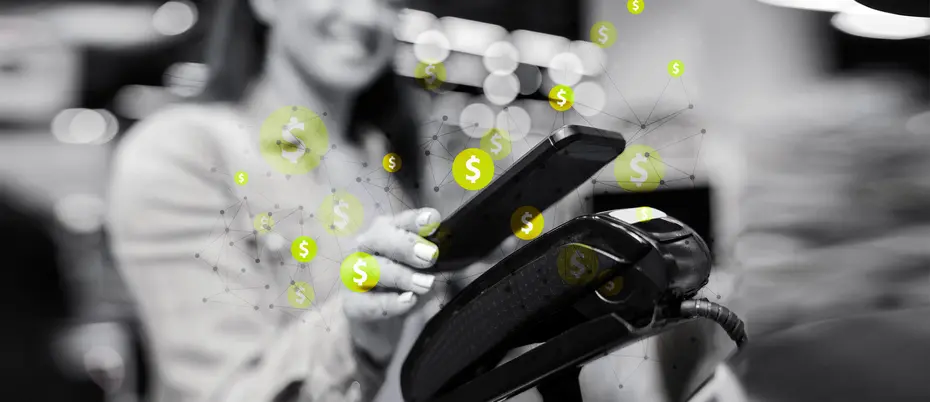Fintech
5 predictions for fintech in 2024
Here’s how regulation, cybersecurity, AI, and cross-border payments will impact financial technology, according to Flywire’s Mohit Kansal.
These days, it’s not uncommon to use Venmo to split a dinner bill or Apple Pay to buy a coffee, but it wasn’t always that way.
A decade ago, most of us were pulling cash out of our wallets or handing over our credit cards to make a purchase, not getting out our phones to pay at the register.
“When Google Pay and Apple Pay were just starting, it took a really long time for them to take off,” said Mohit Kansal, senior vice president of global payments and payer services at Flywire, a Boston-based global payments enablement and software company. “But it’s really come to fruition.”
Now the payments industry is under pressure to take digital payment methods and a host of other innovations to the next level.
At the recent 2024 MIT Sloan Fintech Conference, where Kansal, MBA ’14, was the keynote speaker, he said the financial technology sector is equal parts challenging (think heightened regulatory scrutiny) and exciting (endless innovation).
Here are Kansal’s top predictions for fintech in 2024.
Expect more scrutiny and regulation
Fintechs aren’t unlike large financial institutions, in that they also must comply with complex regulations. And it gets even more complicated for fintechs that operate across jurisdictions: They need to comply with the rules in every country where they operate.
“Fintechs will not be successful if they don’t pay attention to regulation and figure out how to make regulation work in their favor and make it a strategic advantage,” Kansal said.
Given these trends, job prospects are bright for candidates with a dual background in business and regulation, he noted.
But rather than suggesting that companies bring in “a compliance person who’s overly strict,” Kansal said that organizations need the type of person “who can find the right balance of how to withstand regulation and do things in a way that makes the business successful.”
Security and compliance will remain a challenge
Ensuring secure, compliant transactions is crucial for companies like Flywire, which handles large and complex payment transactions in industries like global education, health care, travel, and business-to-business.
All companies must safeguard their customers’ personal details, such as their addresses and passwords, and the stakes are heightened for fintechs, which often store valuable financial information, such as credit card or bank account details, and move high-value, high-stakes payments around the world.
To be a successful fintech and gain your clients’ trust, you need to have the highest levels of security and data privacy certifications, adhere to global laws and regulations, and ensure that your organization is in compliance with the regulations in the specific sub-industries you serve, Kansal said.
That’s amid a security landscape that saw data breaches spike in 2023, due in part to cloud misconfigurations, new types of ransomware attacks, and increased exploitation of vendor systems.
“Security and compliance is a big thing for any company, anywhere,” Kansal said. “The downside of a breach is very high, and it’s becoming harder and harder to figure out how to prevent these breaches.”
Cross-border payments will command attention
Kansal pointed out that payment digitization is becoming more mainstream internationally. In India and Singapore, for example, “even the regulators are in the middle of innovating in the payments industry, and that, to me, makes it super exciting, because everybody’s aligned in moving forward,” he said.
In fact, Flywire is partnering with India’s largest public-sector bank, State Bank of India, to digitize cross-border payments from India to higher education institutions all over the world, thus providing students in India with a fully digital checkout experience.
“I see so much innovation happening in payments around the world: in the U.S., in Latin America, in Europe, in Asia, in every part of the world,” Kansal said.
“There was a time when innovation was only happening and being done by smaller companies, small tech companies who were trying new things [and] really didn’t have much to lose,” he said. “Now you see banks innovating and bigger financial services companies innovating.”
Fintechs will seek to expand consumer success to other functions
Related Articles
“A lot of digitization that is happening today is for consumers and e-commerce payments but less so for invoice-based payments,” Kansal said.
In many cases, contractors are still accustomed to getting paper checks in the mail from their clients. Sometimes this is because companies don’t feel secure making online payments, and when you add in cross-border complexity, “it becomes really, really complex,” Kansal said.
Having the right kind of billing or invoicing software can help streamline complicated situations such as selling a product in Europe, invoicing in euros, receiving money in dollars, and making sure the exchange rate was right.
“That is not solved by just money movement,” Kansal said. “Software and combined payments is how the magic happens.”
Artificial intelligence holds a lot of promise
Like most other industries, Kansal expects artificial intelligence to drive efficiencies in fintech, and in many cases it’s already happening behind the scenes.
“Flywire has many applications of AI already,” Kansal said. “For example, our personalization engine leverages our data and applies artificial intelligence and machine learning to match the payment preferences of our clients’ customers with the right payment options.”
Additionally, the company uses machine learning and AI as part of its fraud detection risk engine.
For all its progress, fintech is still a young and developing discipline, Kansal said. “In fintech, we haven’t yet seen a revolutionary change that has led to a significant impact, but as you look at the promise of the technology, something will happen,” he said. “I think it will change the world for the better.”
Read next: How to leapfrog legacy competitors by partnering with xTechs




